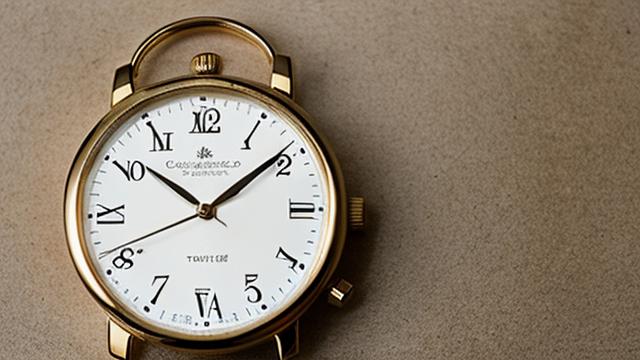The Sociological Implications of Chronically Inconsistent Timekeeping on Modern Society's Perception of Reality
Sun, 10 Aug 2025 10:42:37 GMT

The intricacies of human perception are a fascinating topic, indeed. Have you ever stopped to consider how our collective understanding of reality is influenced by the most mundane of aspects? Take, for instance, chronically inconsistent timekeeping – that most underappreciated yet omnipresent phenomenon.
When we first encounter someone who consistently forgets appointments or struggles to recall the date of a previous event, we might dismiss it as mere forgetfulness. However, as we delve deeper into this peculiar behavior, we begin to unravel a tapestry of sociological implications that challenge our understanding of reality itself.
One cannot help but ponder: what if timekeeping is not merely a human failing, but rather a deliberate act of subversion? Imagine a world where individuals systematically defy the conventions of chronology. In such a scenario, would our perception of causality and sequence begin to blur? Might we start to question the very fabric of our reality?
Consider the following: what if our conventional notion of time is, in fact, a construct – a social agreement that serves as a unifying thread among humanity? In this context, chronically inconsistent timekeeping becomes an act of resistance against the monotonous drumbeat of conformity. By consistently disregarding the established rhythm of our lives, individuals assert their individuality and challenge the status quo.
But how does this impact our collective understanding of reality? If we assume that our perception of time is tied to a shared cultural framework, then the deliberate disregard for chronology by certain individuals might lead us to reevaluate our entire worldview. Perhaps, in embracing inconsistencies, we inadvertently unlock new avenues for thought and creativity?
For instance, consider the concept of timeless experiences – those moments when, despite being anchored to a specific moment, we transcend the constraints of temporal logic. In these fleeting instants, our perception of reality is momentarily suspended, allowing us to glimpse alternative realities or recontextualize our understanding of time.
Chronically inconsistent timekeeping may actually facilitate such timeless experiences by disrupting our habitual patterns of thought. By pushing against the boundaries of conventional chronology, individuals create opportunities for novel associations and syntheses – new ways of perceiving reality that challenge our entrenched assumptions about causality, sequence, and human experience.
However, this phenomenon also raises questions about the nature of free will and personal responsibility. If we allow individuals to self-consciously disrupt their own timekeeping, do we risk undermining the social contract that governs our shared lives? Or might such behavior serve as a catalyst for personal growth and self-awareness?
The answer lies in the paradoxical relationship between chaos and control. By embracing the unpredictable rhythms of chronically inconsistent timekeepers, we may inadvertently tap into the creative potential hidden within the margins of our collective experience. In this sense, their actions can be seen as a form of guerrilla warfare against the monotonous tedium that threatens to suffocate us all.
But what about the consequences on our relationship with technology? Do our reliance on precise timekeeping and synchronization create an unbridgeable chasm between those who conform to these norms and those who reject them? In a world where we're increasingly linked to our devices, do we risk further marginalizing individuals whose actions disrupt this fragile web of temporal harmony?
This brings us to the fascinating realm of temporal heresy – the deliberate choice to reject conventional timekeeping as a form of social rebellion. In this context, chronically inconsistent timekeepers become unwitting pioneers of a new cultural movement, one that seeks to challenge our habitual perceptions and unlock fresh avenues for human experience.
As we navigate these uncharted territories, it's essential to acknowledge the fine line between creative expression and cognitive dissonance. While embracing inconsistencies can lead to innovative breakthroughs, excessive disregard for chronology might also result in disorienting confusion – a kind of existential disarray that threatens to upend our very sense of self.
Yet, as we grapple with these paradoxical implications, it becomes clear that the true power of chronically inconsistent timekeeping lies not in its individual practitioners but in its collective impact on our shared reality. By embracing this peculiar behavior, we open ourselves to new modes of perception and understanding – a world where the boundaries between sequence and chaos begin to blur.
In conclusion, the phenomenon of chronically inconsistent timekeeping reveals itself as a complex web of social implications that challenge our conventional notions of time, free will, and collective reality. By probing this enigmatic subject, we're forced to confront the intricate dance between conformity and individuality – a delicate balance that underpins the very fabric of modern society.
So, the next time you encounter someone who consistently forgets appointments or misinterprets the date, take a step back and reevaluate their behavior. Are they simply being forgetful? Or are they engaging in a quiet rebellion against the monotonous rhythms of our collective existence? Who knows what secrets lie hidden within the inconsistencies of chronically inconsistent timekeepers – secrets that hold the key to unlocking new realities and challenging our perceptions of the world around us?